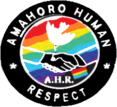Our Programs
GENDER EQUALITY AND SOCIAL INCLUSION
Sexual and gender inequalities are the main root causes of sexual and gender based violence including stigma and discrimination. Through facilitating constructive community dialogues, evidence-based advocacy and provision of legal aid, AHR contributes to building a Rwandan society where all women, men and other individuals have equal opportunities in the national development agenda.
QUALITY AND STIGMA-FREE HEALTH CARE
Stigmatization and discrimination are social determinants of health and can affect one’s mental and physical health and well-being. Stigma and discrimination can affect whether or not a person, particularly vulnerable and marginalised groups to seek or are able to receive health services. It can also affect the quality of the services they receive. Trough evidence-based advocacy and capacity building of of health care providers on human right to health as well as provision of inclusive and stigma free services, AHR contributes to the establishment of more enabling environment for all individuals to fully access available high quality of health care services.
ECONOMIC EMPOWERMENT
Poverty associated with stigma and discrimination are leading factors that prevent vulnerable and marginalised persons from fully enjoying the human rights to development. AHR works towards supporting vulnerable and marginalised groups to access Technical and Vocational Education and Training (TVET), capacity building on entrepreneurship and provision of financial support to start and run small and medium business with the view to improve access to opportunities and equal distribution of resources.
SOCIAL INCLUSION STRATEGIES for Persons with Disabilities (PWDs)
AHR plays a significant role in working with persons with disabilities to promote their inclusion, empowerment, and improved quality of life. This is done through implementation of various programs and initiatives to address the diverse needs and challenges faced by persons with disabilities such as : • Advocacy and Awareness: Engagement in advocacy efforts to raise awareness about the rights and needs of persons with disabilities through changing societal attitudes, challenging stereotypes, and promoting a more inclusive and accepting community. • Capacity-Building and Skills Development: Offering training and skills development programs tailored to vulnerable populations including persons with disabilities. These programs include vocational training i.e. tailoring to enhance their employability and independence. • Livelihood Support: Assisting persons with disabilities with basic needs such as , Community-Based Health Insurance (Mituelle de Sante) shelter and food items. • Empowerment and Self-Advocacy: Empowering persons with disabilities to advocate for their own rights and participate in decision-making processes. This is done through organizing workshops on human rights, advocacy and creation of self-help groups to build their confidence and voice. • Community-Based Rehabilitation (CBR): Implementing CBR programs that bring services directly to communities. These programs focus on holistic support, encompassing health, education, livelihoods, and social inclusion. • Counseling and Psychosocial Support: Provision of orientation to health care providers in counseling and psychosocial support to persons with disabilities and their families to address emotional well-being, coping mechanisms, and social integration. • Partnerships and Collaboration: Collaborating with CSOs and local communities to leverage resources and expertise to create a more inclusive environment.
